Various ways by which P. falciparum parasite evades the immune system via secreted extracellular vesicles
Por um escritor misterioso
Descrição
Extracellular vesicles (EVs) secreted by infected red blood cells (iRBCs), as well as other host cells, are important regulators of the balance that determines the disease outcome. In addition, EVs constitute a robust mode of cell-to-cell communication by transferring signaling cargoes between parasites, and between parasites and host, without requiring cellular contact. The transfer of membrane and cytosolic proteins, lipids, DNA, and RNA through EVs not only modulate the immune response, it also mediates cellular communication between parasites to synchronize the transmission stage. Here, we review the recent progress in understanding EV roles during malaria.

Malaria: Biology and Disease: Cell
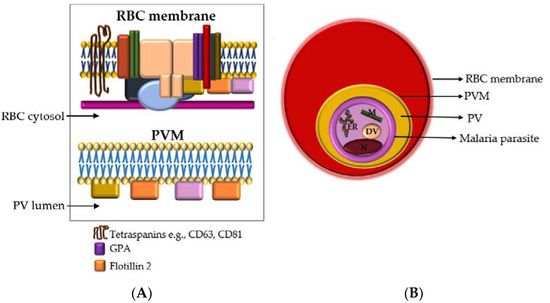
Membranes, Free Full-Text

Immunobiology of parasitic worm extracellular vesicles
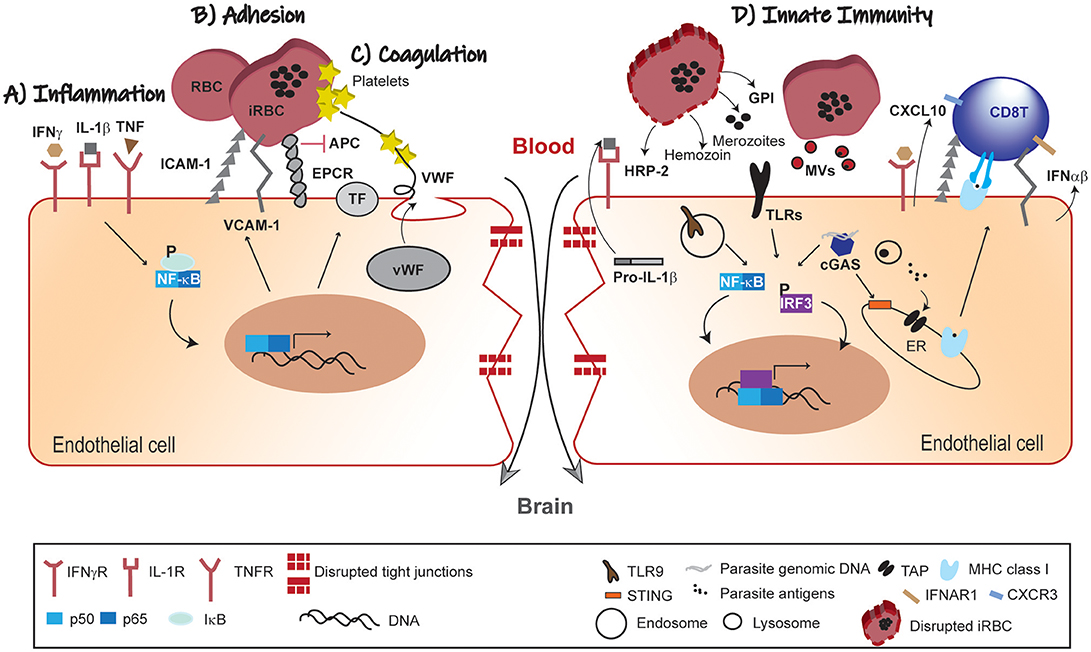
Frontiers Brain Endothelium: The “Innate Immunity Response
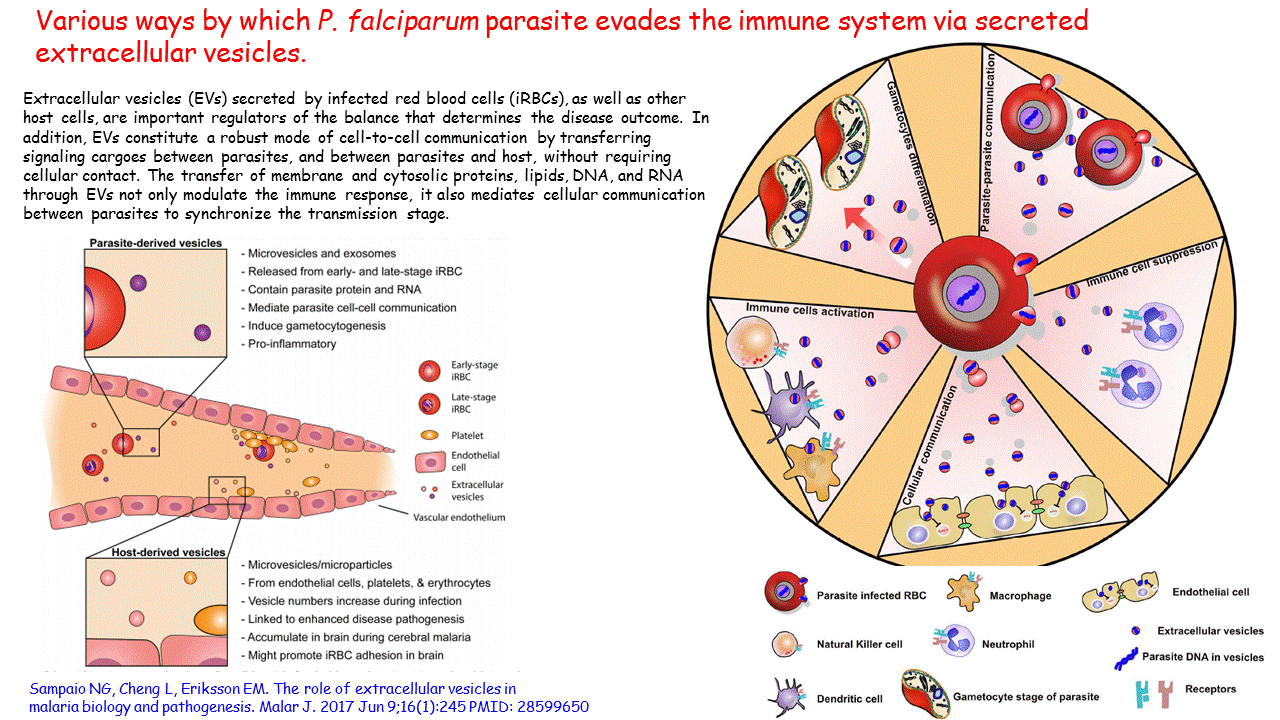
Various ways by which P. falciparum parasite evades the immune
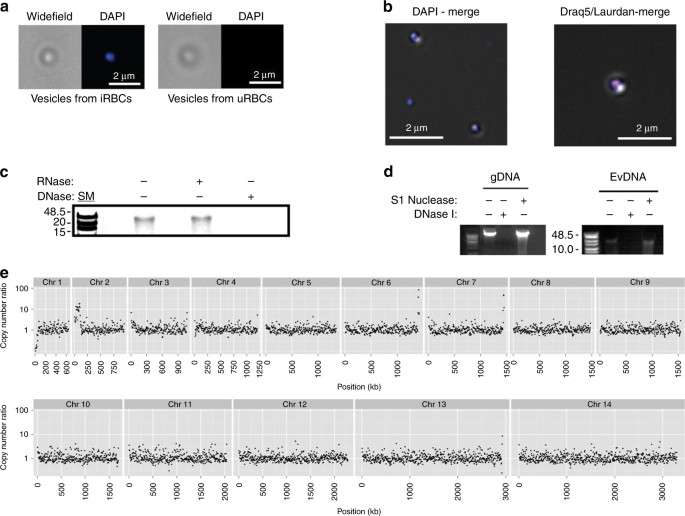
Malaria parasite DNA-harbouring vesicles activate cytosolic immune
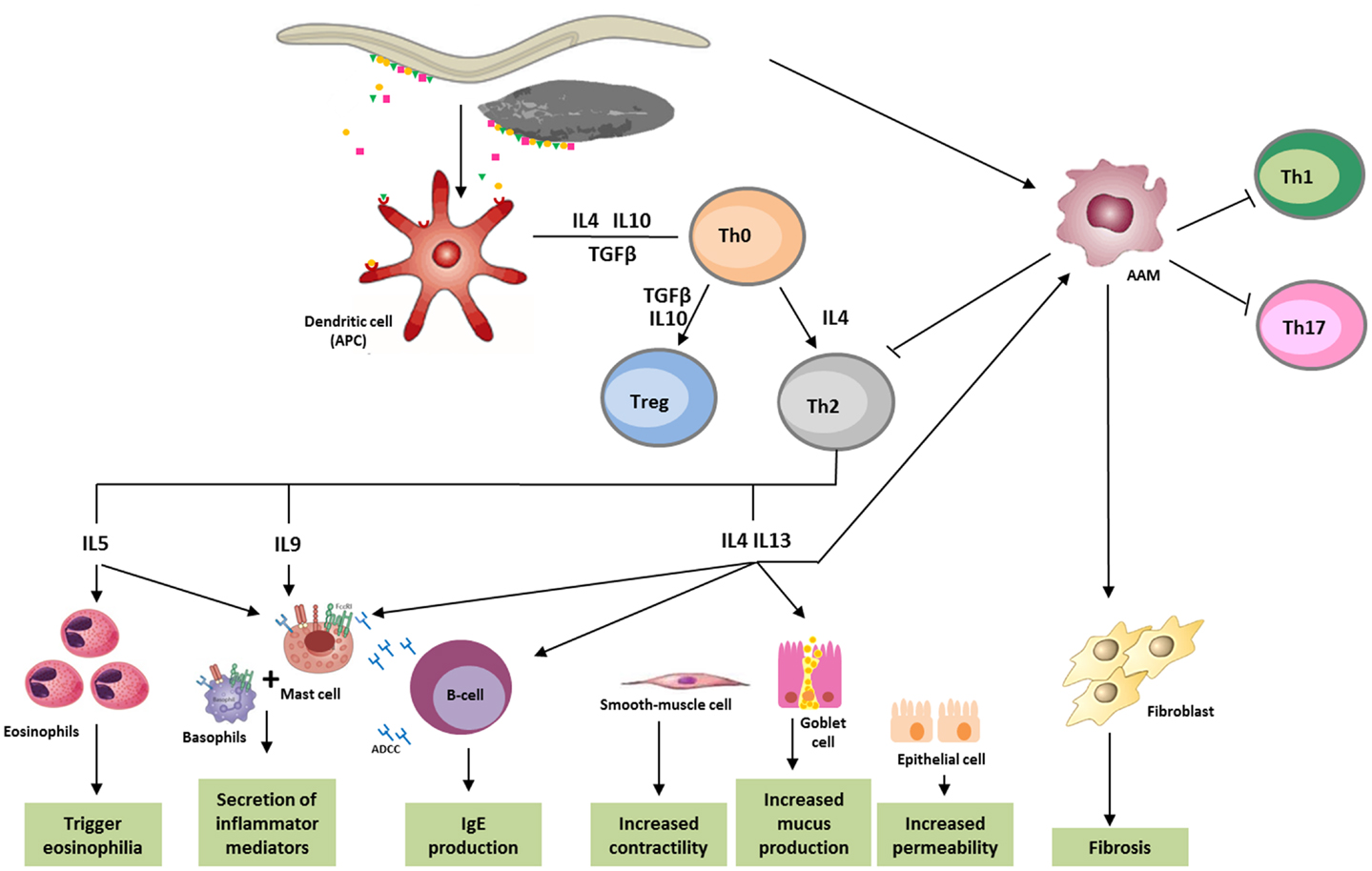
Frontiers The Role of Extracellular Vesicles in Modulating the

Phagocytosis of Plasmodium falciparum by monocytes and neutrophils
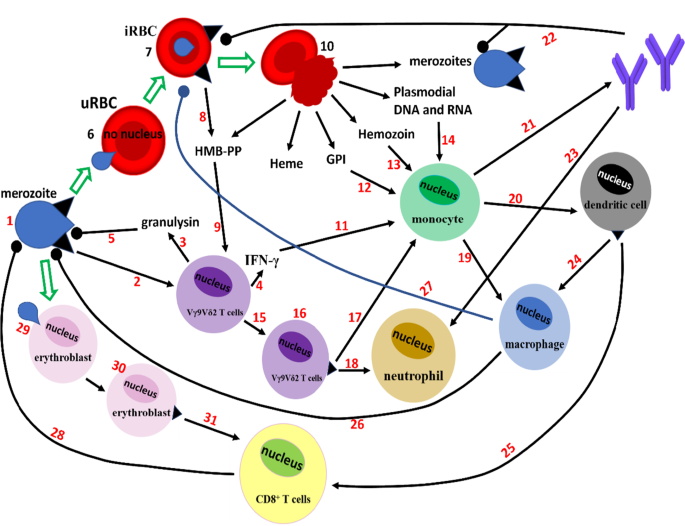
Escaping the enemy's bullets: an update on how malaria parasites

Full article: Trypanosoma evansi evades host innate immunity by

Showing life cycle of P. falciparum parasite and how it evades the
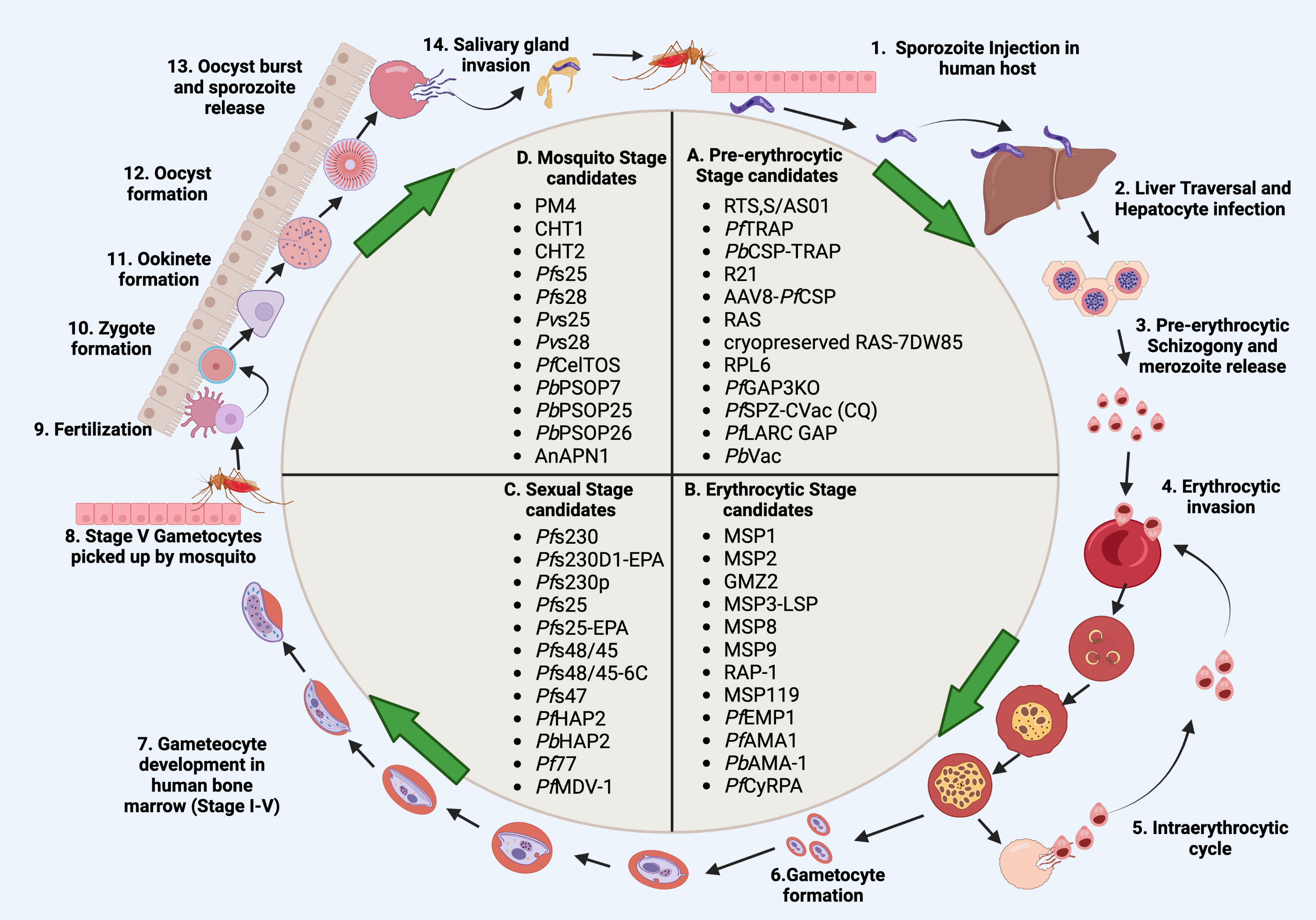
Frontiers Host-parasite interactions during Plasmodium infection
de
por adulto (o preço varia de acordo com o tamanho do grupo)







